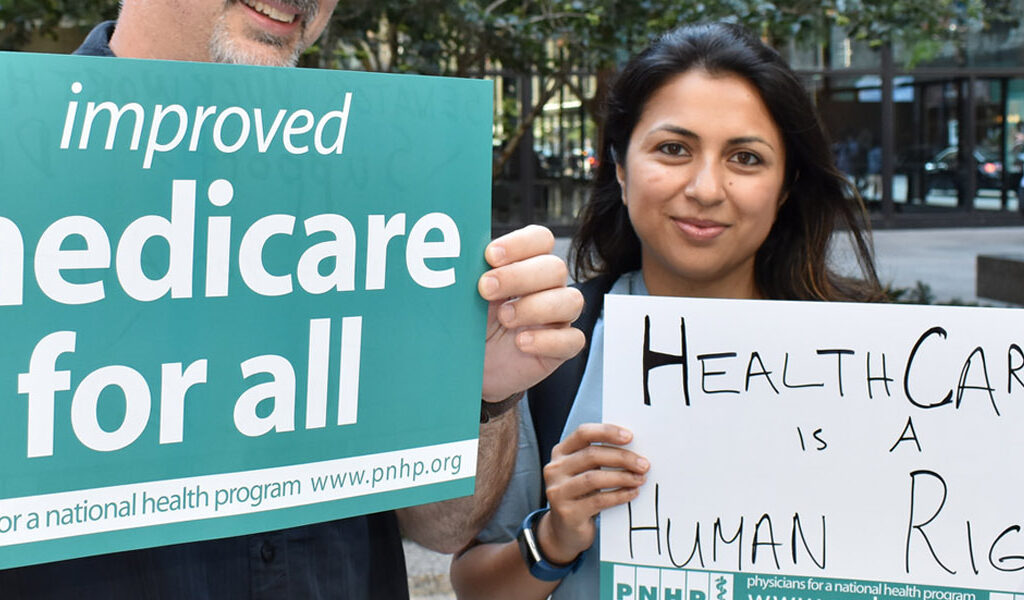
Physicians for a National Healthcare Program is a group of physicians and healthcare workers who are on the frontlines of healthcare and recognize the need for a single payer system. You can learn more about them here and I encourage you to do so. In a nutshell they lay out how a national healthcare system would work, how it’s paid for and the amount of savings it will return.
Medicare is the most efficient program the government runs with only a 4%! That is a phenomenally efficient system and should be the model for all government programs. In contrast, even the so-called Medicare Advantage programs operate with a 15 – 20% overhead. Now to be fair, some will argue the 4% number is derived using ‘faulty math’ because it doesn’t include the overhead of collecting the fees, which are collected by the IRS and Social Security. Using those numbers they say that the “cost per covered individual” is far higher because Medicare patients tend to be sicker. But even if you factor those numbers into the equation, Medicare controls costs, while private insurance, with a profit motive operates at a ‘what the market will bear’ model. This means that some hospitals don’t accept Medicare patients, leaving our seniors vulnerable to chronic diseases without the required care.
But I do not see this as a negative in the argument of a Medicare for all plan. Yes, older people do tend to be sicker and cost more than younger people. But by including everyone into the plan the average cost per patient is lower. Furthermore, if patients aren’t afraid to see their physician sooner, then perhaps we can eliminate many of these more serious health conditions.
Limited access to medical care is of particular concern to us in Rural Oregon. While we are fortunate to have a decent health care provider in Asante here, the film American Hospitals: Healing a Broken System shows how precarious having a profit driven hospital is. (Note: Asante is a non-profit and is an important part of the community and not going anywhere. But the problems of a market driven system are still present.) Areas like Williams, Wolf Creek and the like are certainly underserved as compared to here in Grants Pass, where we are fortunate to have Three Rivers Hospital so close. In my personal case, that access allowed me to get there in time for an effective stroke
One thing people will say about a national healthcare system is about the “death squads” who are not physicians and make decisions about what healthcare is provided. Well if you have ever been denied care by your insurance company, you experienced the same thing. In my experience with a single payer system in New Zealand, I never had an issue with care. However, a work colleague had the same cancer as my late wife and the care was completely different. In the case of my late wife, it was $1.34M and she got an additional 4 months of life, with all the issues of the side effects of the chemo. On the other hand, my colleague was told his cancer was terminal, to go home and enjoy his final days with friends and family. Was the money spend in the US worth it? Or was it more humane to recognize the inevitable, save the money for someone who would actually benefit from it.
The bottom line is we pay too much for our healthcare (the most expensive in the world) and aren’t getting what we pay for (we rank 39th in overall care). It is time to change that.
0 Comments